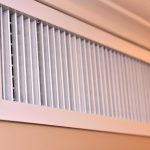
Is Your Air Filter Working For You or Against You?
When is the last time you changed your air filter? How often should you do it? And, when you are standing in the store aisle looking at the litany of choices and price ranges, how do you know which one to choose?
These are the questions that plague every homeowner and that is where Barry comes in. Educating our fans is something that we take pride in, and giving you some basic information to ease the burden of air filter education is part of what wakes us up to deliver the Cool each day.
Generally speaking, you need to change your air filter every 30-60 days. But specifically, it depends on a factors such as the type of air filter you are using, the overall air quality of your home and the surrounding area, and importantly – if you have pets or smoke.
Filters are important not only for the air quality in your home, but when you have the wrong type or keep a dirty one, you can cause your AC to work harder. More work from the AC means higher energy bills, so take note of the following factors before you head to the store.
SIZE Before you buy any new filters, make sure to check the size. The easiest way to determine this is to look on the old air filter currently in your system. Otherwise measure the opening by both the height and width.
TYPE Mechanical air filters are designed to remove particles from the air (dust, pollen, dust mite and cockroach allergens, some molds and animal dander) by capturing them on the filter material. High efficiency particulate air (HEPA) filters are designed to remove microscopic allergens like dust mites, mold spores and tobacco smoke. If you or anyone in your home is affected by allergies, asthma or other related breathing problems, these types of filters may be right for you. Gas phase air filters remove gases and odors by using a material called a sorbent, such as activated carbon, which adsorbs the pollutants. If you have a problem with odors in your home, carbon filters may be a good choice for reducing harmful smells, chemicals and gaseous vapors.
RATING Air filters are rated by the efficiency in which the air passes through it. This is measured by the minimum efficiency reporting value (MERV), with ranges from a low of 1 to a high of 20. Flat or panel air filters with a MERV of 1-4 are the least expensive and are useful in protecting the HVAC equipment from the buildup of unwanted materials on the surface of the motors and coils. However, they are not very efficient in trapping smaller airborne particles, but they have satisfactory efficiency in trapping larger particles.
Filters rated with a MERV of 5-13 are reasonably efficient at removing small to large airborne particles while filters rated with a MERV of 7-13 are likely as effective as true HEPA filters at controlling most airborne indoor particles. When you get to the high efficiency filters (MERV rated 14 -20), a residential system is likely to encounter airflow resistance and may not have enough fan or motor capacity to accommodate it. Therefore it is very important that you understand what MERV rating your system can handle before upgrading.
With this information in your arsenal, we hope you are better equipped for the challenge of buying and replacing your home air filter. But remember all of these factors come into play when making your considerations, so be sure to understand each of these variables before you head to the store. Barineau is happy to provide a regular supply of air filters for you, so the guess work is gone. And we are always here to answer all of your heating and cooling questions. Don’t hesitate to give Barineau a call if you have any additional questions regarding your air filter. Keep it Cool, Barry fans. #BarryKnowsCool.




